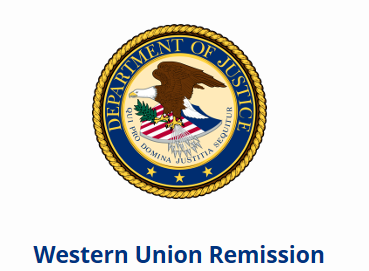Scam Victims Can File a Claim to Get Their Money Back
You may be in luck if you were the victim of a scam between Thursday, Jan. 1, 2004, and Thursday Jan. 19, 2017, and paid the criminal via wire transfer with Western Union.
Earlier this month, the Federal Trade Commission announced that victims have until Monday, Feb.12, 2018, to file a claim and get their money back.
“American consumers lost money while Western Union looked the other way,” said FTC Acting Chairman Maureen K. Ohlhausen. “We’re pleased to start the process that will get that money back into consumers’ rightful hands.”
The refunds are a result of a joint investigation by the FTC, the Department of Justice and the U.S. Postal Inspection Service. Western Union agreed to pay a $586 million settlement and the DOJ is using that money to provide refunds to victims.
What types of scams are eligible for a refund:
- Internet scams
- Lottery or prize and promotion schemes
- Emergency or grandparent scams
- Advance-fee loan scams
- Online dating or romance scams
How to file a claim:
Victims who previously informed Western Union that they were the victim of scam should receive a pre-filled claim form. If you did not receive a form, or did not previously inform Western Union of the scam, you can access the form online. Anyone who sent money to a scammer is eligible to submit a claim.
Consumers who were victim to multiple scams can also file a different claim for each case. Once the claim is filed, the DOJ will check with the Treasury Offset Program to ensure that victims do not owe money to the federal government. Refunds could be reduced if victims owe money.
Click here for more information or contact the refund administrator at (844) 319-2124 or info@westernunionremission.com.
Additional Information can be accessed at Hawai‘i’s Better Business Bureau, located 1132 Bishop St., Ste. 615, Honolulu, by calling (808) 536-6956 or faxing (808) 628-3970.
Before a refund is issued each claim must be verified by the DOJ. Once the claim in verified the amount you will get back will depend on how much was lost and the amount of people who submit valid claims. Only the amount transferred will be taken into consideration. All other expenses associated with the scam will not be refunded. According to the FTC, the entire process may take up to a year.
The claim form will ask for a victims social security number. The number is used to check with the Treasury Offset Program to be sure the person filing the claim does not owe money to Federal Government. Those who owe money may receive a reduced refund.
Tips to avoid being scammed online or over the phone:
- Do not rely on caller ID or company logos. Criminals have the capability of “spoofing” a phone number of a well-known organization or business to try to trick consumers into sending them money, providing them with personal information, or both. Scam artists will also send letters and emails with variations of well-known companies and organizations.
- Verify the person contacting you by writing down their name, name of the company, and address (if you received a letter via mail). Look for accurate contact information for the organization by contacting your local Better Business Bureau. Then contact the company with the provided information and verify the legitimacy of the solicitation.
- Be wary of callers or solicitations that try to illicit an emotional response. Scam artists typically use tactics to scare, excite, or otherwise get an emotional response from the victim to lure them in. Try not to let your emotions outweigh your senses, and remember: If something sounds too good to be true, it probably is.
- Never send money to people you do not know, especially via wire transfer, prepaid debit card, or gift card.
- Report scams when you encounter them. If you come across something you think may be a scam, report it or by contacting your local BBB.







